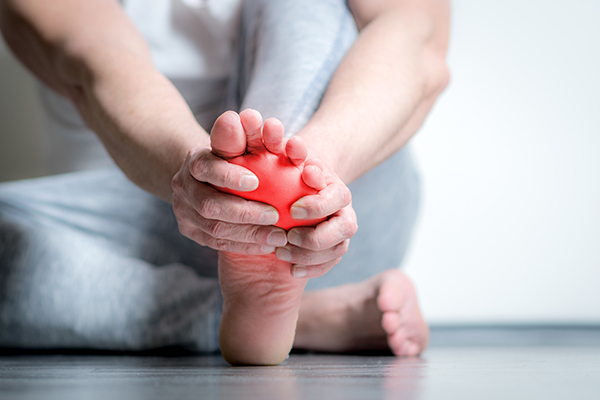Sleep deprivation linked to health issues like obesity and cognitive decline
08/08/2023 / By Zoey Sky

It’s normal to sometimes have trouble falling asleep at night, but if you can’t sleep well three days a week or your sleep problems persist for one month or longer, you may have sleep disorders that require immediate attention.
An estimated 50 to 70 million people in the U.S. suffer from chronic or ongoing sleep disorders, according to the National Heart, Lung and Blood Institute (NHLBI).
If you think you may have the same problem, you can improve your sleep quality by making some lifestyle changes.
Major types of sleep disorders
Here are four common types of sleep disorders.
Difficulty falling asleep
One of the most common issues faced by people with sleep disorders is difficulty falling asleep. Ideally, children or adolescents should fall asleep within 30 minutes of lying in bed with their eyes closed.
Meanwhile, adults should fall asleep within one hour under the same conditions. (Related: State of insomnia: Study ranks California as the No. 1 most sleep-deprived state.)
Shallow sleep
Some people with sleep disorders can fall asleep, but their problem is that they often experience shorter periods of deep sleep and spend more time in a lighter sleep state, which still causes poor sleep quality.
Even if they get at least seven to eight hours of sleep, these people usually wake up feeling unrefreshed and fatigued.
Other people with health issues like allergies, frequent nasal congestion or thick nasal polyps may have to breathe through their mouths, resulting in a dry mouth and shallow sleep.
While individuals with sleep apnea may not always have nasal congestion, they still need to breathe through their mouths due to nighttime breathing interruptions.
And if people with this sleep problem experience a particularly dry mouth during the night, they may wake up for water or feel very thirsty in the morning. They may still feel unrefreshed even after sleeping for a long time.
According to Traditional Chinese Medicine (TCM), meridians are the channels where life energy (qi) flows in the body. Meridians are responsible for transporting qi and blood throughout the entire body, which are the crucial substances that constitute and sustain human life.
The body consists of 12 major meridians, each corresponding to a specific organ. The internal organs are connected to the body’s surface through these meridians.
The meridians house specific points called acupoints with unique functions. By stimulating the corresponding acupoints through techniques like acupuncture and massage, you may relieve health issues linked to specific organs.
Nighttime awakenings
People with this sleep disorder often experience multiple awakenings during the night.
This can be a problem because every time they wake up, it takes them more than 30 minutes to fall back asleep.
Early morning awakening
People suffering from early morning awakenings usually wake up more than an hour earlier than their usual time. Additionally, their overall sleep duration during the night is often less than five hours.
This can cause issues because the recommended daily sleep duration is at least 6.5 to eight hours.
If you don’t have trouble falling asleep at night, you should also make sure you don’t oversleep because it can also make you feel more tired.
TCM practitioners say that “prolonged bed rest weakens qi,” meaning that extended periods of lying down in bed can hinder the circulation of qi and blood in your body.
To maintain your overall health, it is better to avoid extended bed rest even if you are experiencing discomfort or pain. Experts say engaging in appropriate physical activity may offer more benefits than longer bedrest for overall health.
Health issues linked to poor sleep
One of the most direct impacts of sleep problems is fatigue caused by insufficient sleep.
Sleep disorders can also have these negative side effects:
Cognitive impairment
Data suggests that inadequate sleep can result in a decline in brain function, including memory.
The hippocampus, located on the sides of your brain, has an important role in storing short-term memories. Throughout the day, your memories are stored in the frontal lobe, but during nighttime sleep, they are transferred to the hippocampus and are then transferred back to the frontal lobe for permanent storage.
Poor sleep can impact the functionality of the hippocampus, meaning it can affect the consolidation of temporary memories into permanent ones.
Increased risk of dementia
Many elderly dementia patients have chronic sleep disorders because not getting enough sleep can impact memory storage and prevent the brain from resting properly.
Chronic poor sleep may also contribute to brain atrophy and exacerbate the degeneration of brain function.
Increased obesity risk
Your body’s metabolism functions better with adequate sleep, while poor sleep can contribute to weight gain.
This means getting enough quality sleep is essential, especially if you want to lose weight or sustain a healthy weight.
If you have high blood lipids even after taking cholesterol-lowering medications or following a balanced diet, you may want to consult your doctor to check for sleep disorders.
Improving sleep quality can boost metabolism, which may help address any lipid metabolism disorders.
Metabolic syndrome
Chronic sleep disorders can cause metabolic disorders such as high blood sugar, high blood lipids, hypertension and obesity.
In severe cases, it can even increase the risk of cardiovascular diseases, including heart disease and stroke.
Weakened immune system
Insufficient sleep can disrupt the body’s hormones, endocrine system and nervous system, which may contribute to a weakened immune system.
Natural and drug-free ways to improve sleep quality
Try the tips below if you have trouble falling asleep every night:
Sunbathe
Sunbathing can regulate your autonomic nervous system and melatonin secretion, which can help improve sleep quality at night.
Try to spend at least 30 minutes sunbathing in the morning or go for a run or another activity for one hour during sunset. Even on cloudy or rainy days, the sun’s photons can still reach the Earth and offer benefits, making outdoor activities conducive to your well-being.
Foot soak
Try soaking your feet in hot water before going to bed. The closer the temperature of your internal organs is to your limbs, the easier it is to fall asleep.
The temperature of your internal organs is usually higher than your hands and feet and soaking your feet in water at around 102° to 104°F (39° to 40°C) can narrow the temperature gap to promote better sleep.
Optimize your bedroom environment
If you have trouble falling asleep, try to optimize your bedroom environment.
Your bedroom environment and its setup are linked to quality sleep at night. These factors include external lights, noise and temperate furniture arrangement.
Research suggests that external noises from traffic may contribute to poor sleep and long-term health problems.
Findings from one study revealed that the bedroom environment of women, which was about half of the volunteers, reported improved sleep quality when noise and light diminished in their rooms.
Optimize your bedroom environment by limiting external noise, light and artificial lights from devices like your smartphone or alarm clocks.
Keep your bedroom clean, quiet and relaxing to improve sleep quality.
Do simple stretching exercises at night
Before you turn in for the night, try simple stretching exercises to relax your muscles and joints.
When the muscles are relaxed before bedtime, the mind tends to calm down as well, making it easier to fall asleep.
Visit Health.news for more tips on how to improve sleep quality and your overall well-being.
Watch the video below to find out how Manuka honey can help you sleep better at night.
This video is from the Health Ranger Store channel on Brighteon.com.
More related stories:
3 Reasons why Americans suffer from sleep disorders.
Coffee nap: The brain benefits of combining caffeine with sleep.
Here’s why quality sleep is crucial for your survival when SHTF.
Sources include:
Submit a correction >>
Tagged Under:
alternative medicine, brain function, brain health, cognitive health, cognitive impairment, dementia, health science, immune health, insomnia, metabolic syndrome, Mind, mind body science, natural cures, natural health, natural medicine, obesity, remedies, sleep, sleep deprivation, sleep disorders, tips
This article may contain statements that reflect the opinion of the author
RECENT NEWS & ARTICLES
COPYRIGHT © 2017 NATURAL CURES NEWS




















